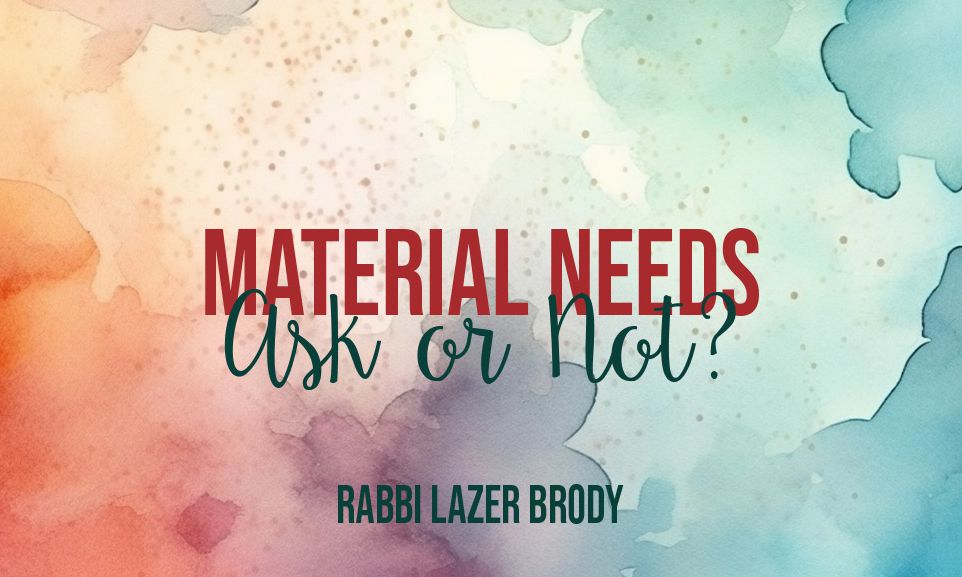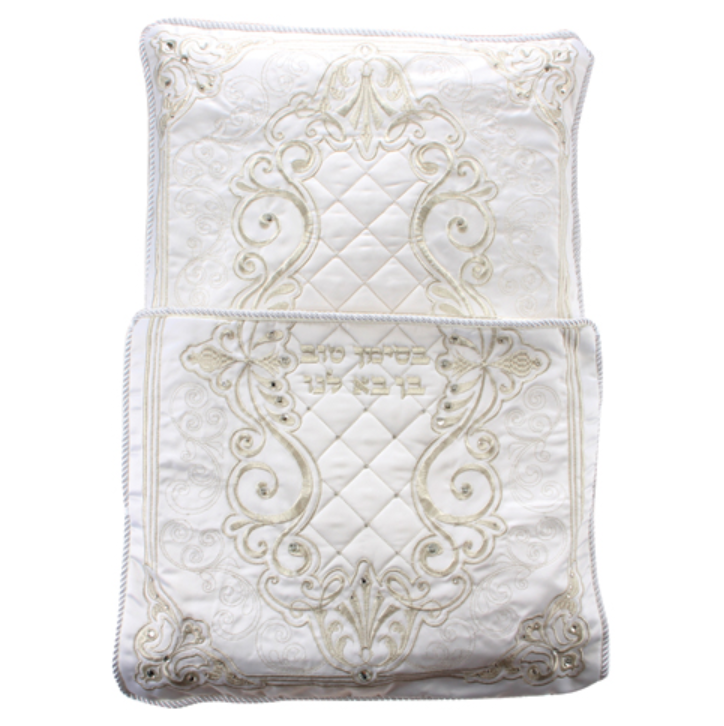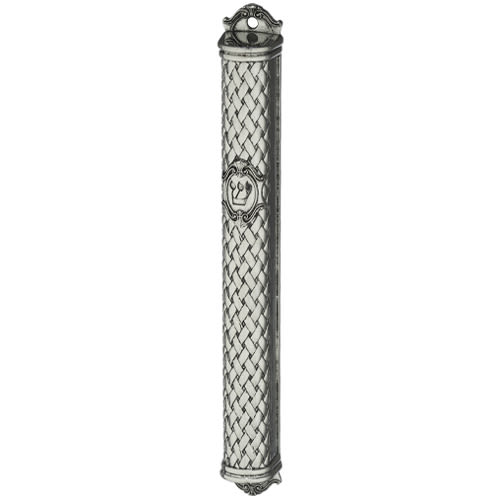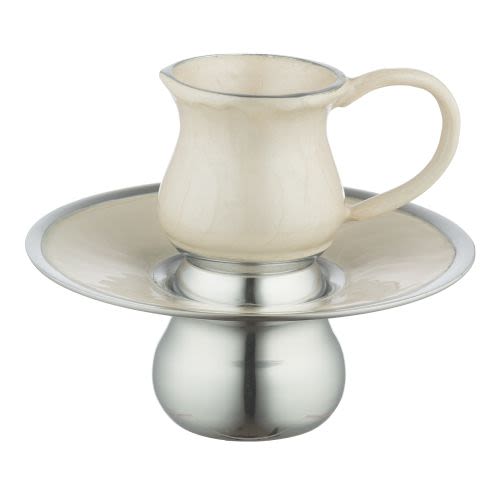
Vayeitzei: Material Needs: Ask or Not?
The Gemara compares requests for material needs to barking dogs in purgatory. So what do we do? Do we ask Hashem for our material needs or don't we?

“…bread to eat and a garment to wear…” (Genesis 28:20).
Jacob prayed for his material needs, but as we see at the passage at hand, his requests were minimal. We can surmise that our holy forefather didn’t want to ask for anything more than the most basic commodities that would enable him to devote his time and energy to Torah and Divine service.
Yet, there’s room to ponder whether Jacob lacked trust in Hashem. Why must he pray for “bread and a garment”, a person’s most minimal needs? If he’s naked and hungry, he certainly won’t be able to serve Hashem. Isn’t it a foregone conclusion that if Hashem brought us into the world, He’ll provide our basic sustenance?
The word for “give me” in Aramaic is hav. In the Gemara, Mar Ukva reprimands us, saying that a person who asks Hashem for material things sounds like two barking dogs from purgatory, “hav hav”, or “gimme gimme”.[1] He adds that those who bark like dogs with material requests face a fate worse than dogs. Mar Ukva  is seemingly condemning any material request in the most blatant manner. So what do we do? Do we ask Hashem for our material needs or don’t we?
is seemingly condemning any material request in the most blatant manner. So what do we do? Do we ask Hashem for our material needs or don’t we?
Rebbe Nachman of Breslev teaches that one should accustom himself to praying for all his material needs at all times, income, children, health and so forth; one should pray to Hashem and believe that Hashem is good for everything, no matter what a persons needs are. Indeed, one’s main effort should be prayer, and not chasing after one’s needs with all types of schemes.[2]
How can Rebbe Nachman contradict Mar Ukva and the Gemara? With Hashem’s loving grace, if I’m not mistaken, there is no contradiction here. Mar Ukva and the Gemara are talking about material requests for the sake of lust and appetite satisfaction. On the other hand, Rebbe Nachman is talking about requesting those material needs that enable a person to serve Hashem, just like our forefather Jacob did.
We can understand Rebbe Nachman’s approach with the following parable: one of the King’s servants is responsible for polishing the King’s shoes and maintaining their impeccable shine and appearance at all times. When this servant asks the King for the finest brushes, chamois cloths and leather oils, his requests will undoubtedly be fulfilled. Why? These are the basic tools that he needs to successfully perform his duties to the King. By the same token, if our requests are for material commodities that we need in our service of Hashem, they will be granted us as well. Yet, if we request something that is for our own enjoyment, something that has nothing to do with serving Hashem, maybe it will be granted and maybe not. In any case, those prayers for our tiniest needs – such as a button or a ball-point pen, not only strengthen our emuna but bring tremendous gratification to Hashem, for they make the statement that we can’t accomplish or attain anything without the grace of our loving Father in Heaven. So, pray for all of your needs, big and small, and don’t stop praying!











Tell us what you think!
Thank you for your comment!
It will be published after approval by the Editor.